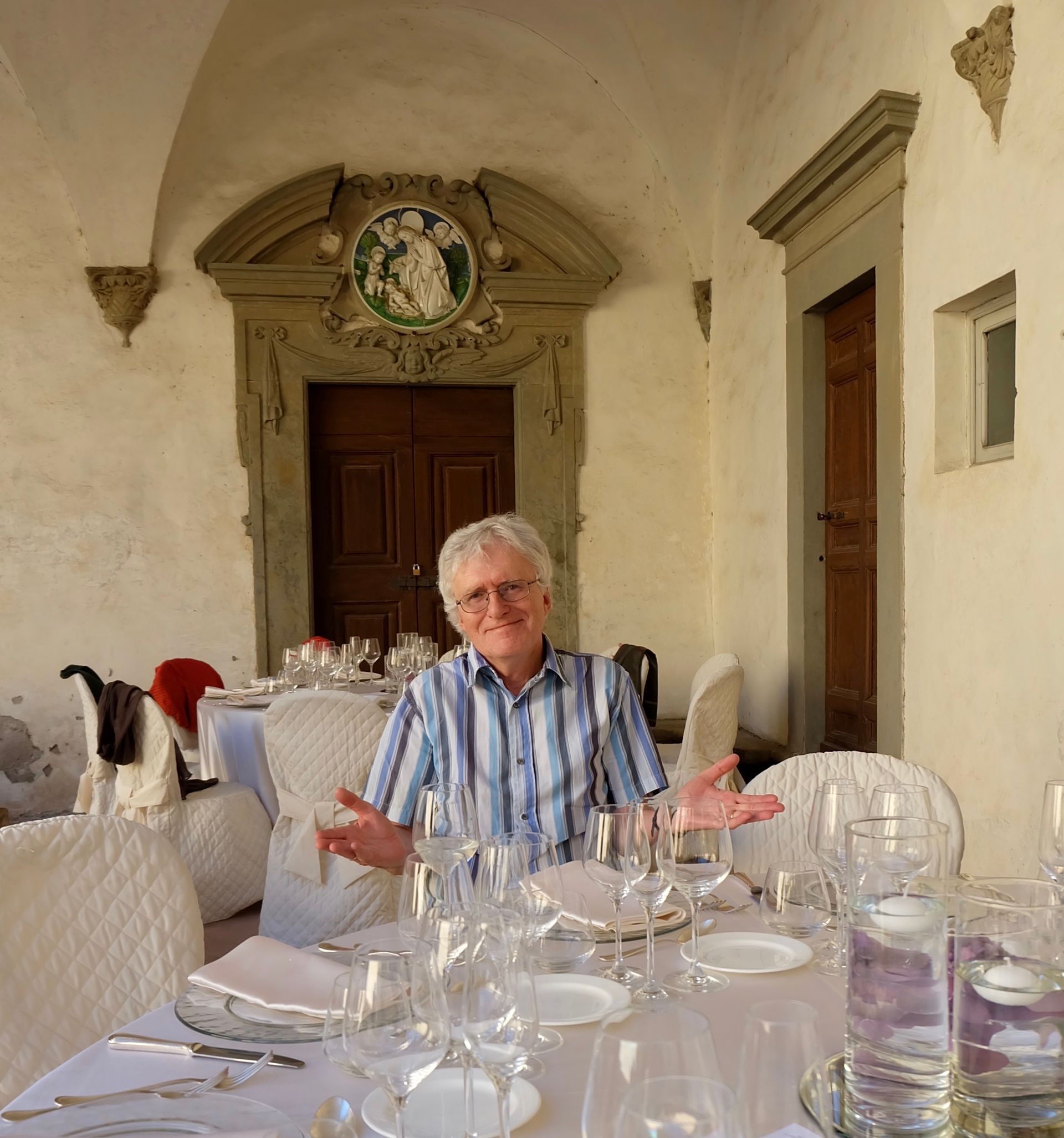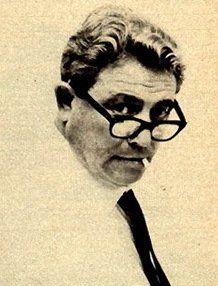... omarino fragile ed elegante, così dotato di stile da apparire manierato e qualche volta finto.
Remembering Gianni Brera
Gianni Brera, unknown author - from the Italian magazine Epoca, N. 1268, year XXVI, p.43.
The twentieth anniversary of the death in a road accident of Gianni Brera – gioânnbrerafucarlo, as he sometimes signed himself – was commemorated today by the newspaper for which he worked for the last ten years of his life, La Repubblica . Born ‘a legitimate son of the river Po’ in San Zenone al Po (Pavia) on 8 September 1919, he had a very successful career as a sports journalist (he was appointed editor of the Gazzetta dello Sport aged 30), using his literary skill, creativity and knowledge to become Italy’s most famous exponent of the art. His first books were on cycling (published at the time of the rivalry between Coppi and Bartali) and athletics, but thereafter he dedicated himself to football where he became as well-known as the players on whom he wrote his countless columns.
To describe individuals and their teams, managers and their tactics, he frequently imported terms from other sports ( forcing , from boxing; goleador and incornare from bullfighting; melina from basketball) which then entered the standard lexicon of football-writing. His most famous neologism, abatino , was first used to characterise the slender genius Gianni Rivera who made his first division debut for Alessandria in 1958 at the age of 15 and became one of A.C.Milan’s stars in their glory days of the 1960s and 1970s under Nereo Rocco (interviewed here by Brera). The definition which Brera invented – ‘ omarino fragile ed elegante, così dotato di stile da apparire manierato e qualche volta finto ’ – he later applied to Italians generally.
Apart from football and friendship, his passions were the food and wine of the Po Valley on which he also wrote prolifically. La Pacciada: mangiarebere in pianura padana (1973), co-written with the wine-expert Luigi Veronelli, is a particularly enjoyable incorporation of the recipes of Old Lombardy into an autobiographical account and a cultural context which has vanished. To get a sense of the person behind the writings, the brief memoir which his successor at La Repubblica , Gianni Mura, wrote when he heard of Brera’s death on 19 December 1992, is a good place to start.









